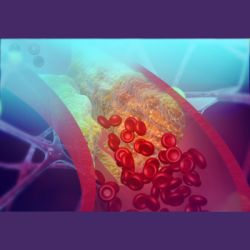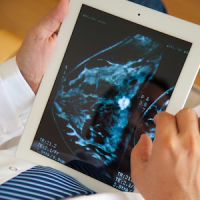Executive Summary
There is a special interest in the AI automation of interpretation of medicalimaging, since radiologists' costs is one of the biggest expenses in radiology. AI apps, theoretically, succeed in ‘diagnosing’ many medical imaging areas, mainly in the brain, lung, breast and heart, but also in others such as eyes, liver, bones, joints, prostate and kidneys. However, as the article notes, AI implementation in radiology faces many challenges, being the standardisation of AI algorithms the main one. Algorithms are not interchangeable among institutions or equipment. AI systems must be subject to scrutiny before being incorporated to clinical practice – and that includes radiology.
You may also like: What does it mean to scan medicine and life with a radiologist gaze?
While imaging analysis and interpretation (diagnosis and reporting) is the most appealing opportunity of AI in radiology, it is considered AI will modify most of aspects of the speciality. By extracting data from electronic health records (EHR) patient’s relevant clinical, genomic, and other information, for example, AI will help in the entire so called “workflow orchestration”: from patient scheduling and triaging, to making the choice of the most convenient radiology study to be performed, to avoiding overuse.
Furthermore, it is envisioned that radiologists, working as data scientists, could play a central role in the so called precision medicine, into a kind of “precision radiology” to which radiomics could add important information. The future role of radiologists, the author explains, would be to check the diagnostic results produced by algorithms embedded within our imaging reading workflow. As data science specialists, radiologists will maintain the control of diagnosis by integrating the EHR information and accepting, rejecting or tweaking the AI diagnostic work. It will persist for many years, the need to review and validate the diagnoses made by AI so that the role of radiologists will persist for a long time.
"Even if in the future AI multiplies radiologist efficiency, given the continuous increase in the demand for imaging tests, the call for radiologists – or for whatever the name of the future data scientist specialised in imaging diagnosis will be – will continue to increase, making it improbable that the radiologist workforce will shrink," the author writes.
Is it really necessary for all radiologists to be experts in artificial intelligence?
Only those radiologists working with application developers should have a more deep knowledge about AI coding, but it is crucial that radiologists know the expectations and limitations of artificial intelligence in our field, according to the author.
In conclusion, the author says there is a lot of work to be done, especially to demonstrate that the implementation of AI and Big Data in Radiology is capable of improving the outcome of our patients and the efficiency of healthcare systems.
Source: Full article will be published 22 February 2019 in HealthManagement.org
Image credit: iStock
References:
https://healthmanagement.org/c/imaging
Latest Articles
Imaging, Radiology, Healthcare, Medicine, Radiologists, Spain, efficiency, Workflow, precision medicine, EHR, medical imaging, diagnosis, big data, clinical practice, healthcare systems, automation, primary care, radiomics, Artificial Intelligence, AI, AI algorithms, María Jesús Díaz Candamio, Servicio de Radiología, Hospital Universitario de A Coruña, imaging analysis, triaging, data scientists, precision radiology, imaging diagnosis, genomic, phenotype
Artificial intelligence (AI) is clearly the new trend in automation. This article, "The AI-powered radiologist", published by Dr. María Jesús Díaz Candamio, a radiologist at the Servicio de Radiología, Hospital Universitario de A Coruña (Spain), highlight



























